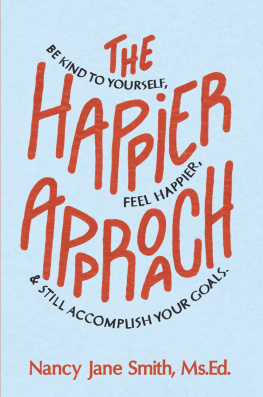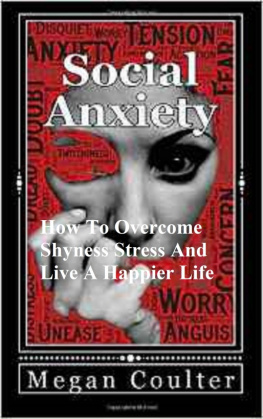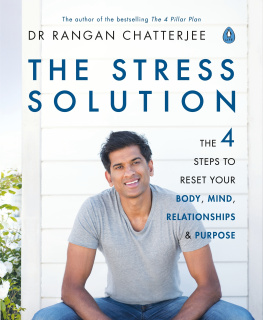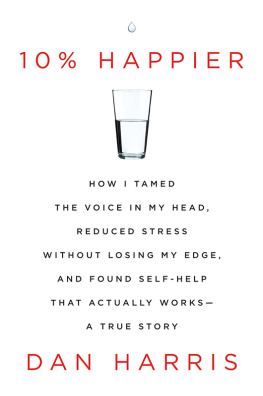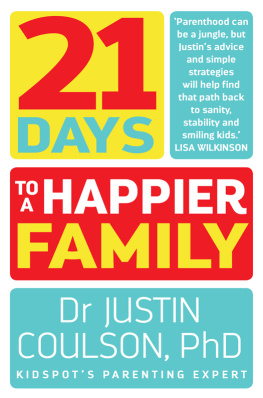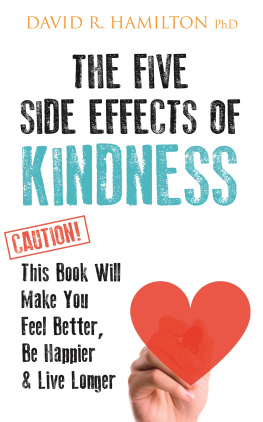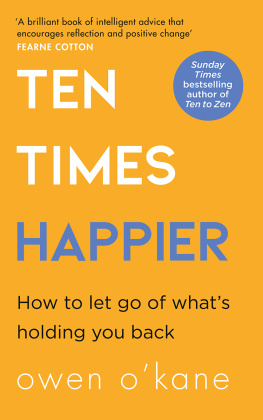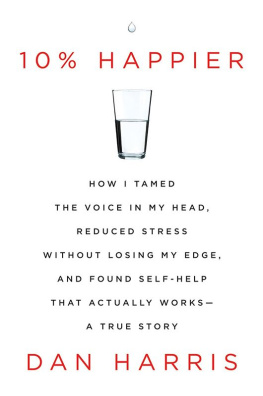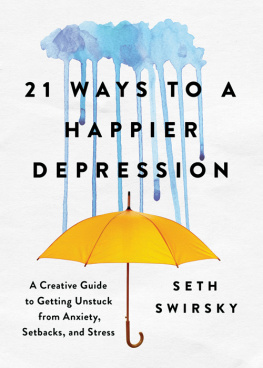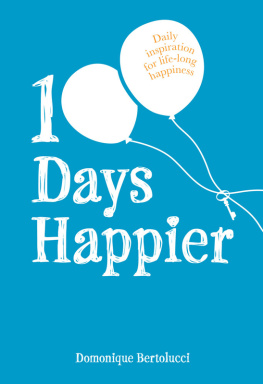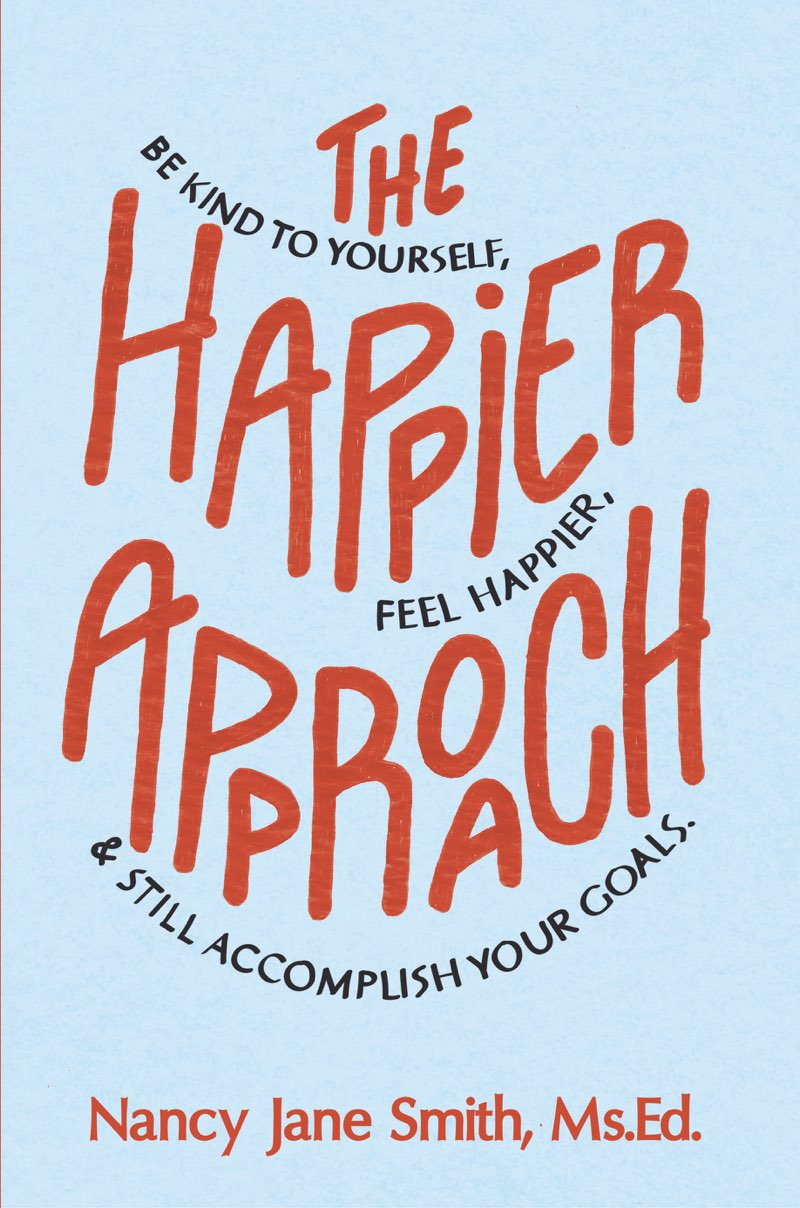T his book contains material protected under International and Federal Copyright Laws and Treaties. Any unauthorized reprint or use of this material is prohibited. Reproduction, in whole or part, without written permission is prohibited .
Although every precaution has been taken to verify the accuracy of the information contained herein, the author and publisher assume no responsibility for any errors or omissions. No liability is assumed for damages that may result from the use of information contained within .
Introduction
A fter almost 20 years of working with people as a coach and counselor, I have come to realize that the #1 thing that prevents us from feeling happier is the negative voice in our head. You know the voice, that mean nasty voice, telling you your hair is too gray, you are a terrible mom for not making it to the soccer game, or you failed yet again by not speaking up at work .
That voice. I call that voice the Monger .
Most of us have a Monger. My Monger has always been loud and mean. She had a lot of rules and standards for how I should live my life. My Monger convinced me that happiness and success cant be obtained without hard work and punishing myself. Perfection is the standard my Monger held me to, and she convinced me that happiness and contentment are always one step away .
I graduated from a small Catholic high school in middle America and made my way to a Midwest university doing all the right things as explained to me by those around me. I spent much of my 20s muddling my way through, oscillating between the beliefs that I can do anything if I only know what that is and that I must be practical, get a good job in business, get married, buy a house, and settle down .
During this time, my Monger continued to hammer me and told me that if I pushed myself hard enough and checked off all the boxes (i.e., good job, nice house, supportive husband), then I would be happy. She was happy to push and scold me until I achieved the next item on the list, and I was happy to listen .
In my 30s, I had what looked like a successful life: a Masters degree, a job I enjoyed at a local college, an active social life, and a new house. I had checked off (almost) all the boxes. In all honesty, I wanted for nothing and I was supposed to be happy. And still, I remember sitting on my porch with my then good friend now husband saying, I have a good job, a loving family, and a nice house. I should be happy. What is wrong with me?! He nodded and smiled and poured us more wine .
I look back on that time and cringehello, privileged!? And yes, I have been very privileged in my life. But it is easy to get stuck in self-blame and privilege. In truth, I wasnt just whining; I was lost. My Monger was telling me constantly how lost, stupid, and incompetent I was. It didnt matter how much money, success, or privilege I gained; my Monger always wanted more. She kept happiness dangling like a prize I could win if only I was a better person. Unfortunately, no matter how hard I tried, I never seemed to win. I was successfulor at least my Monger had bullied me to a place of what looked like successbut I wasnt happy. I was miserable .
The Monger is universal. She knows no color, economic, or social bounds. She haunts all of us. Telling us how much we miss the mark, how terrible we are, and how much more we should do to succeed. It doesnt matter if we have all the money in the world. We cant buy out our Monger .
Over the next few years, I started seeing a counselor, and eventually I was inspired to earn my Masters in Counseling. I learned a lot about the Monger both personally and professionally, but I never learned how to successfully quiet her. For the most part, my Monger controlled my life, causing me to be more anxious. I call it Hustling for Happiness, this belief that success and happiness are just out of reach. My Monger keeps me hustling with the belief that this time I will do it perfectly. Once I achieve X (losing 20 pounds, getting the next promotion, getting married, etc.), then I will have arrived. Even as I taught about the Monger and shared with people the dangers of this negative voice, I was secretly getting eaten alive by my own Monger .
Around this same time, my dads health began worsening and I started spending more time with him. I always knew he lived with a loud Monger, but I had no idea how strong a hold his Monger had on him. In his lifetime, he had loved the same woman for 53 years, built his own insurance agency from scratch, raised three loving kids, given back to the community, and worked to maintain a beautiful home. Now, he was a man in his 70s ravaged by Parkinsons with Dementia. He fought every day to keep moving and stay active. When he looked back on his well-accomplished life, he still didnt feel good enough. His Monger convinced him that no matter what he did, he was a failure. I swore to myself things had to change. I had to start doing my life differently I wasnt going to spend my time on earth being hammered by my Monger .
So I started on a quest. I read as much as I could about how to quiet the inner critic (aka Monger). The advice was to love yourself no matter what (aka practice self-compassion), so I became obsessed with the subject of self-compassion. I chatted with clients and friends. I practiced self-compassion exercises like repeating positive mantras and telling myself how awesome I was .
To be honest, the idea of loving myself no matter what was radical and foreign. It sounded great, but it wasnt something I could do 100 percent of the time. Hell, I couldnt even do it 20 percent of the time. I couldnt do it because secretly I equated all the success I had achieved so far with how hard I drove myself. In other words, I believed my Monger when she repeatedly told me that success equals happiness and success only comes when you are hard on yourself .
This idea of self-compassion left me questioning: If I loved myself no matter what, could I still be successful? What about being happier? Could I still accomplish as much? Or would my to-do list just grow and grow while I sat eating Reeses cups and bingeing on The Real Housewives ?
It was an internal struggle. I didnt want to turn into my dad, never feeling enough and always looking for the next thing, but I also didnt want to be an aimless loser who never accomplished anything .
The problem was twofold: One, my Monger voice was painful and stressing me out. Two, when I practiced what I thought was self-compassion, it would lead to a short respite, but in the end, it made my Monger

